A tentative welcome mat is being laid out for visitors in many European countries.

Vienna, Austria. Picture: iStock
As the world slowly reopens to tourism, the European Union (EU) plans to lift many internal borders. Some countries – including Greece, Croatia and Portugal – have started reaching out to tourists, as have a few Caribbean island nations, including St Lucia.
Varying government policies, morphing “travel bubbles” and frequently cancelled flights will continue to complicate international travel, but here are some of the places in Europe that are tentatively putting out a welcome mat.
Austria
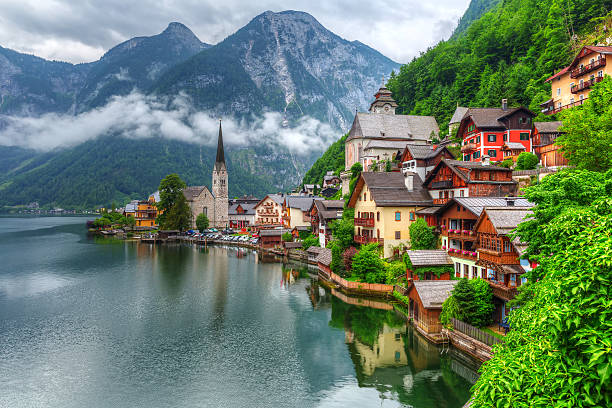
Hallstatt, Austria. Picture: iStock
Austrian Airlines resumed flights this week and visitors from EU member states, except Sweden, Spain and Portugal, can enter Austria without a medical certificate or quarantining.
Travellers from Britain are prohibited. (Austria opened its borders to Germany, Liechtenstein, Switzerland, Slovakia, Czech Republic and Hungary on 4 June.) But other “cross-border travel is still strongly discouraged or impossible”, according to Austria’s Official Travel Portal.
Visitors from other countries must submit a medical certificate confirming a negative test result from within four days of entering Austria. Citizens of the EU, the European Economic Area, Switzerland and Britain, as well as those travelling from within the Schengen area, may commit to a 14-day home quarantine in lieu of the test.
Belgium
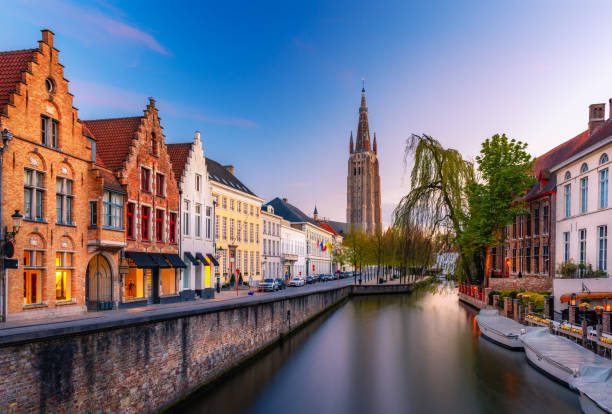
Bruges, Belgium. Picture: iStock
Belgium welcomes travellers from within the EU, as well as Britain, Switzerland, Liechtenstein, Iceland and Norway.
Supervised sports and cultural activities cannot exceed 20 people in June and 50 in July. Cafes and bars have been open as of 8 June and may remain open until 1am. Tables are 1.5 metres (apart with no more than 10 people per table). Waiters must wear masks, and customers must stay seated.
Cinemas, casinos and banqueting and reception halls with a maximum of 200 attendees will reopen on 1 July. Nightclubs will not reopen until at least the end of August.
Czech Republic
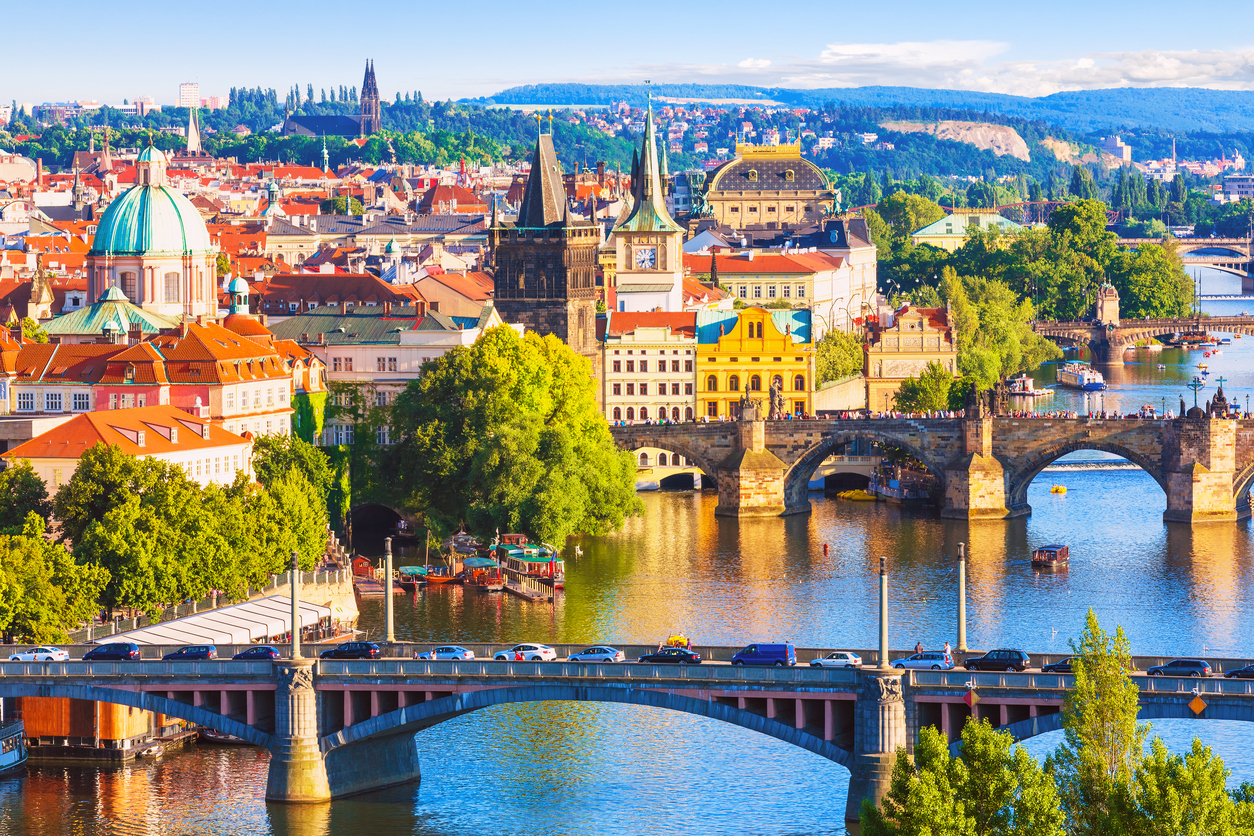
Prague, Czech Republic. Picture: iStock
Citizens and residents of 20 European countries will be allowed entry, with restrictions guided by a colour-coded system based on the severity of the outbreak in those countries.
Visitors from low-risk “green” countries may enter the Czech Republic without documentation of testing, quarantine or purpose of travel. Citizens and residents of “orange” and “red” countries are banned from entry, unless exempted by the Ministry of Health Protective Measure, and with the submission of a medical certificate.
Borders between the Czech Republic, Germany and Austria will include police spot-checks to ensure compliance with the health ministry’s measure.
Restaurants, cafes, bars and other dining facilities, as well as hotels, have been fully reopened with heightened sanitary measures since 25 May.
Masks are required inside all public buildings, as well as on public transit and in areas with at least two people where social distancing is not possible. Inside restaurants, servers must wear masks, and customers must wear masks when not seated at the table.
Social distancing is required at hotels, and guests must be provided with information about safety procedures and have access to disinfectants.
Denmark
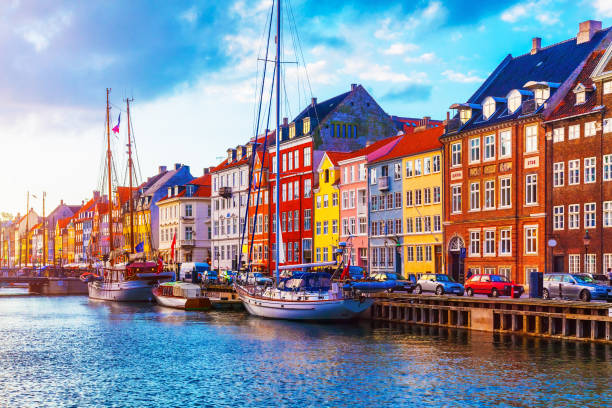
Copenhagen, Denmark. Picture: iStock
Travellers from Germany, Norway and Iceland may visit with documentation of a valid booking for a stay of at least six nights. Those visitors may also stay overnight in Copenhagen, following the same booking requirements.
Quarantine is not a legal requirement in Denmark, but travellers from cities with populations larger than 750,000 in Norway, Germany and Iceland are advised to do so, according to the Foreign Ministry and the official police site.
Visitors from Sweden, which has a significantly higher death rate per capita than the rest of the Nordic region, are prohibited from entering the country without daily commuter restriction exemptions.
Restaurants and cafes have been open with distance and hygiene restrictions since 18 May.
Faroe Islands, Denmark
The Faroe Islands. Picture: iStock
Tourists with residency in Denmark, Greenland, Norway, Germany and Iceland may travel to the Faroe Islands.
Visitors from other countries are “still strongly advised to self-quarantine for 14 days”, according to government guidelines. Visitors from the approved countries do not need to self-quarantine but must have a medical certificate showing a negative Covid-19 test taken within five days of arrival.
The government recommends that people remain at least 1 metre apart in public spaces, and keep 2 metres away where risk of infection is considered greater. Bars, restaurants and other venues are advised to close by 10pm.
Germany
Cologne, Germany. Picture: iStock
Borders were opened this week and restrictions eased for travellers from the EU, Britain, Iceland, Norway, Liechtenstein and Switzerland.
Germany excludes citizens and residents from countries with large-scale lockdowns and entry bans. Visitors from Sweden may not enter, and those from Spain will be excluded until tomorrow.
Larger venue events, including concerts, festivals and spectator sports, have been banned until at least 31 August.
The reopening process varies across Germany, with the country’s 16 governors determining when certain places reopen, including cinemas, tattoo parlours and brothels.
Greece

Santorini, Greece. Picture: iStock
Greece is allowing visitors from the following 29 countries: Germany, Austria, Denmark, Norway, Cyprus, Israel, Switzerland, Japan, Malta, Bulgaria, China, Croatia, Australia, New Zealand, North Macedonia, Albania, Estonia, Latvia, Lebanon, Lithuania, Hungary, South Korea, Serbia, Montenegro, Romania, Slovenia, Slovakia, Czech Republic and Finland.
According to Greece’s Civil Aviation Authority, some travellers may be required to quarantine or take Covid-19 tests. Random visitor tests will be conducted, and the list of acceptable countries for travel will be updated again before 1 July.
Indoor dining restaurants, fast food spots, bars, internet cafes and open-air nightclubs have been open since 6 June. As of Monday, seasonal hotels, museums, historic buildings and areas, theme and entertainment parks, gyms, saunas, spas and thermal springs will be open to visitors.
The Netherlands
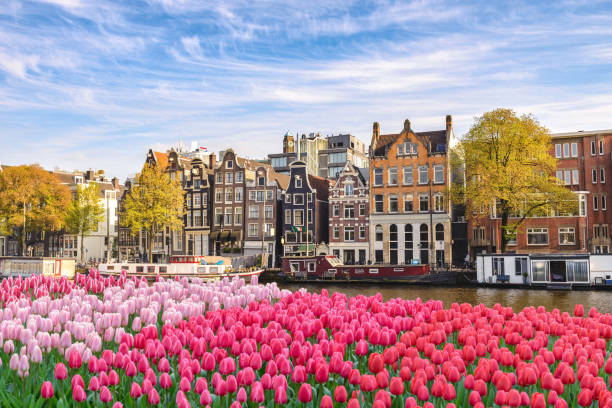
Amsterdam, Netherlands.
Visitors from 30 countries may visit. Visitors from Sweden and Britain are prohibited.
Travellers from high-risk areas are required to complete a health screening form and encouraged to self-quarantine for 14 days. Face masks are not required at Dutch airports, and temperature screenings are not typical.
Tourists must have proof of hotel or lodging reservations to cross the border. Travel within the Netherlands is not restricted, although tourists are urged against going to busy locations. Tourists who do not follow local rules may be fined.
Social distancing and good hygiene rules apply, and public transportation is only allowed for essential travel — which does not include tourism. Face masks must be worn on mass transit.
If you prefer to eat inside a restaurant or cafe, as opposed to outside, you must make a reservation. Diners must be seated and keep 1.5 metres away from people not within their own household.
Switzerland

Zürich, Switzerland. Picture: iStock
Switzerland has opened borders with Austria, France and Germany, “thereby abolishing all travel restrictions to these countries and re-establishing the free movement of persons”, according to a government news release. The country will keep its borders with Italy closed, although Italy opened its own borders on 3 June.
The Federal Department of Home Affairs maintains the right to “order a medical examination at the border for certain groups of people, including a temperature reading, a health questionnaire or quarantine, for any person from a high-risk country listed in the Covid-19 Ordinance who wishes to enter Switzerland”.
Restaurants have been open for about a month, with social distancing measures in place.
Turkey
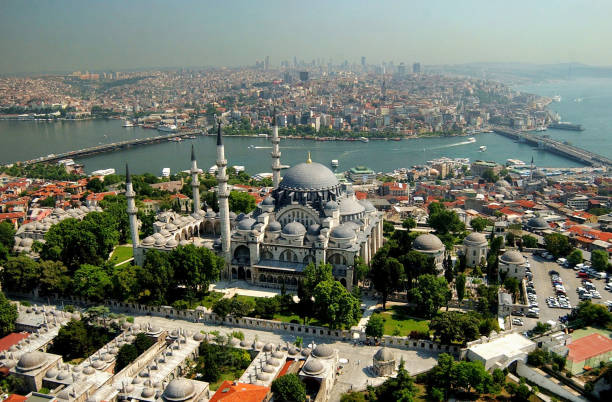
Istanbul, Turkey. Picture: iStock
This month, Turkey will resume flights to and from 40 countries. Among those who can visit are people from: Austria, Bahrain, Bulgaria, Croatia, Germany, Greece, Northern Cyprus and Singapore. Later this month, travellers may come from additional locations, including Belgium, the Netherlands, Norway and South Korea.
The Ministry of Health may require individuals to quarantine for 14 days if they have symptoms of Covid-19. Face masks must be worn anywhere people are “collectively located”, including in private cars with two or more people.
For more news your way, download The Citizen’s app for iOS and Android.





